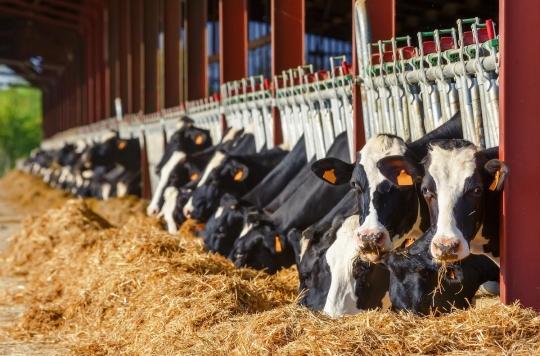With the increase in population and climate change, feeding the planet will become a key issue. To achieve this, reducing the consumption of meat products seems inevitable.

- The calories made available to farm animals bring few calories back to humans.
- The need for cultivated land could thus increase by 15% in 2050 compared to 2010.
- We must find alternative solutions such as forest products such as mushrooms, honey, seeds or even insects.
In 2050, the world population should exceed 9 billion inhabitants, and why not exceed 10 billion by 2100. Feeding everyone will become, if this is not already the case, a major issue. In June 2020, the newspaper NS Public Health Nutrition confirmed that to achieve this objective it will be necessary to reduce the world consumption of meat products.
Reduce losses and waste
This study highlights the calories provided by livestock compared to those provided to them. It appears that the latter bring few calories to humans. Indeed, for 100 calories of cereals made available to animals, humans only recover 40 new calories of milk, 22 calories of eggs, 12 of chicken, 10 of pork or 3 of beef. In the long term, wanting to rely on such a system to feed a growing population is not viable.
Furthermore, to feed these beasts, more and more agricultural land is needed as global demand increases. The need for cultivated land could thus increase by 15% in 2050 compared to 2010, according to Philippe Mauguin, director of the National Research Institute for Agriculture, Food and the Environment (INRAE). “In this perspective, research focuses on reducing post-harvest losses in developing countries and food waste in developed countries.”, he told the echoes in February 2020.
Insects, an option
For INRAE, the solution lies in the transformation of eating habits to get out of the current dependence on meat and make vegetable proteins more attractive. “The development of legumes such as alfalfa or faba bean is also a priority for our farms, in order to reduce our dependence on proteins and the import of soybeans which contribute to the deforestation of the Amazon.”, underlined Philippe Mauguin. For him, synthetic meat, put forward by some as a response to the problem of population growth, is not an option that works. “I do not believe in the development of large-scale production of synthetic meat, the ecological balance of which is disputed. We need farms for sustainable agriculture in our territories”, he pleaded.
To fight against food insecurity, everyone has their own method. The Food and Agriculture Organization of the United Nations (FAO) calls for better consideration of our resources. In one report of 2013, it insisted on the role of forest products in the fight against hunger. By forest products, she means not only mushrooms, honey and seeds, but also insects. “They are a major and easily accessible source of nutritious and protein-rich food from forests”clarifies the text.
About two billion people consume it on the planet. Rich in proteins and lipids, they could play a key role in reducing famines. Their breeding would also be less costly ecologically: “On average, insects consume only 2 kg of food to produce 1 kg of insect meat. Livestock, at the other end of the spectrum, require 8 kg of feed to produce 1 kg of meat.” There would be more than a million known species of insects in the world, an infinity of possibilities for the meals of the future!
.
















